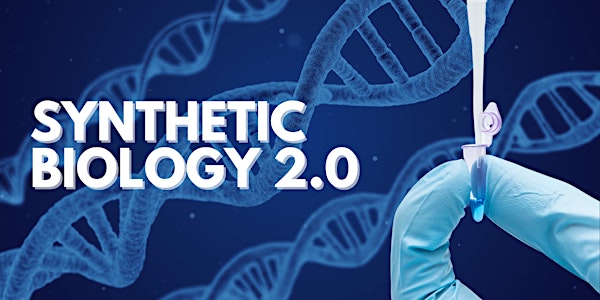
Synthetic Biology 2.0: Let's Assemble Pigment Pathways
In this three-part class, we will reengineer the biosynthesis of marine pigments into the common baker's yeast.
Date and time
Location
Genspace
132 32nd Street Suite 108 Brooklyn, NY 11232Refund Policy
About this event
- 7 days 4 hours
Three-part Course:
Saturday, May 25, 2pm - 6PM EDT
Sunday, May 26, 2pm - 6PM EDT
Saturday, June 1, 2pm - 6PM EDT
Imagine the future. What if we could convert the rising levels of carbon dioxide in the environment to automobile fuel using algae? Or clean up oil spills by using engineered bacteria? Or even light our streets using plants that glow? Such advances, historically reserved for science fiction writers, are theoretically possible and might be around the corner if the fast-growing field of synthetic biology has its way.
At a very basic level, synthetic biology is about building biological systems from scratch. By applying such a genetic engineering approach to biology, we can understand the rules by which these systems work or are constrained, and then apply our knowledge to construct useful biological systems for society. Individual proteins, cells, and even whole organisms can be engineered. Currently, research in this field ranges from the synthesis of designer proteins that are not found in nature, to the ‘writing’ of new, custom genomes of whole organisms, and even de-extinction efforts of species such as the wooly mammoth.
In this 2.0 version of Synthetic Biology, participants will learn how this exciting field is developing through the following hands-on experiment workflow:
- We will first analyze the genes of marine bacteria that produce the natural pigment violacein, reengineer its biosynthetic pathway, and construct it in yeast. We will further amplify the genes responsible for the biosynthesis of green, red, and yellow fluorescent proteins and conduct competing DNA assemblies.
- This experiment will create differently colored yeast colonies, which we will analyze using polymerase chain reaction, PCR.
- Lastly, we will map our genotypic findings with the appearance of the analyzed yeast colonies.
Taken together, this course will provide a unique experience about how to build biology from the ground up and how to study such engineered systems. We will then discuss the ethical, legal, and social implications and impact of synthetic biology technologies
COVID-19 Safety Notice:
If you are feeling unwell, suspect that you have been exposed to COVID-19 or test positive, please do not attend and let us know ASAP (info@genspace.org). If you cancel after our 7-day policy, we cannot refund your ticket, but we can exchange and offer credits toward future classes. If you have signed up for Biohacker Boot Camp, we will automatically transfer your registration to the next month’s dates unless you tell us otherwise.
Meet the Instructor
Peter Rühmann (he/him) grew up in the Hamburg area in Germany and obtained his PhD degree in chemistry under the guidance of Professor Dirk Trauner at NYU. He currently is a postdoctoral researcher in the Boeke lab at NYU Langone where he uses yeast and synthetic biology for the discovery of new antibiotics. Outside the lab, he uses yeast to bake bread, bikes around the city or explores the outdoors of New England.